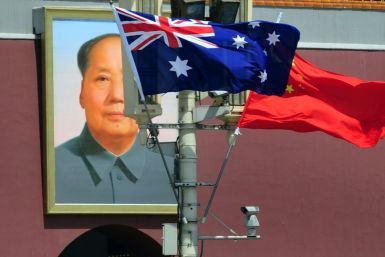Daily forex forecast 14/02/2011
Australian Dollar: The Australian Dollar fell below parity for the first time since the start of month following comments from RBA Governor Glenn Stevens who suggested interest rates may remain stationary for most of the year. Mr. Stevens informed the Parliamentary committee Australia was 'ahead of the game' affording 'periods of sitting, waiting and watching' which could be 'lengthy', given financial conditions are on the 'firm side'. Offshore, his comments weighing the Aussie down as low as 0.9960 versus the Greenback. This morning the Aussie opens at 1.0018 US ahead of Australian home loan figures and Chinese data.
We expect a range today of 0.9975-1.0060
New Zealand Dollar: The New Zealand Dollar fell to 0.7550 US offshore following the neighbouring Aussie. Stronger confidence among US consumers in February fuelled speculation the US Federal Reserve would increase treasury yields weakened the Kiwi. Meanwhile political turmoil in Egypt dampened risk appetite with investor flows running to safe havens. With retail sales figures on due for release this morning, the Kiwi opens at 0.7599.
We expect a range today of 0.7560-0.7640
Great British Pound: Producer prices in the UK printed hotter than expected with input prices increasing 1.7% for January versus estimates of 1.3% while core input costs jumped 1%. Despite evidence of stronger inflationary pressure the Pound slumped to 1.5962 against the US Dollar following the release after the central bank left rates on hold the previous day. BOE Governor Mervyn King dismissing inflation risks as temporary. "The bank would certainly be uncomfortable if sterling appreciated strongly, because that would solve the inflation problem but it would be depressing the economy" explained former policy maker Kate Barker. This morning the Pound opens lower against the Aussie and Kiwi buying 1.5966 and 2.1044 respectively.
We expect a range today of 1.5929-1.6010
Majors: The Euro fell below 1.3500 US continuing its decent against the Dollar following the resignation of Bundesbank President Axel Weber. As the forerunner to replace Jean-Claude Trichet as the ECB's next president, Weber's resignation due to a 'lack of acceptance' for his monetary views un-nerved currency markets as speculation increased that Portugal would need to tap into Europe's bailout fund. Egypt's political unrest has seen currency flowing towards the Greenback in a bid for safety. Meanwhile better than expected US consumer confidence saw the Greenback take 83.66 Japanese Yen. Although US trade deficit widened in January, mainly due to increases in oil, better jobless figures and improvements in consumer confidence have made outlooks for the US more optimistic.
Data releases
AUD: Home Loans (Dec)
NZD: Retail Sales (jan)
JPY: GDP (Q4)
GBP: No Data Today
EUR: Industrial Production
USD: No Data Today






